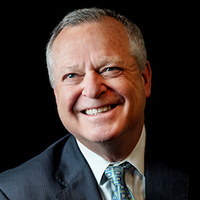You can succeed with new technology by committing to one guiding principle: simplicity
- As the exponential advancement of technology continues, simplicity becomes a key determinant of success for healthcare organizations.
- Both providers and health plans should strive for simplicity throughout the healthcare consumer experience.
- Healthcare organizations should view the ability to simplify complex processes and operations as a core skill.
If you think technology has changed rapidly in the last 20 years or so, buckle your seatbelt. The pace is only going to pick up.
Moore’s Law, which was first set forth in 1965, tells us that the speed and capability of computers can be expected to double every two years. In 2015, Intel co-founder and chairman emeritus Gordon Moore said of his eponymous principle, “Someday it has to stop. No exponential like this goes on forever.”1 So far, though, it shows no sign of stopping.

Simplicity exemplified
Some very bright people devote their careers to predicting how technology will impact people’s lives. Futurists haven’t always had a great track record with this (flying cars, anyone?). But there’s one thing you can count on: The products and services that succeed will be those that can harness complex technology and make it simple for consumers to use.
Consider smartphones. Data is transported instantaneously via glass and air — something I will never understand — which makes our small, easy-to-use smartphones as powerful as the mainframe computers of years past. A smartphone has far more computing power than NASA did in 1969, the year of the first lunar landing. Yet, a child can use a smartphone. That’s simplicity.
Simplifying the HFMA member experience
At HFMA, we recently completed major phases of an organizational transformation initiative. An all-inclusive pricing structure relieved members of the need to make numerous small purchasing decisions, bringing transparency and clarity to the membership value proposition.
We also streamlined the digital experience, tailoring the information that members see and receive to their needs and interests, preventing information from becoming clutter and making the website easier to use. This is not a “one and done” change. We know we must stay vigilant to avoid “complexity creep” as we add new membership benefits and digital capabilities.
Simplifying the healthcare consumer experience
Likewise, we in the healthcare industry should make things simple for consumers. Health plans and providers alike should strive for simplicity, despite the complexity in payment mechanisms (which will get more complicated before they get simpler), the complexity of the human body (about which scientists learn more every day) and developments in biometrics and genomics (which are still in their infancy).
Too often, consumers find health insurance confusing, health advice contradictory and healthcare encounters challenging rather than caring. There are many reasons why healthcare providers and practitioners were more trusted decades ago than they are today, but one big reason is that the entire healthcare sphere is so much more complicated now. The complexity is daunting. Sometimes, it’s a deterrent to seeking needed care.
For finance professionals, simplifying the financial experience should start with adopting HFMA’s Patient Financial Communications Best Practices. Implementing these practices takes the uncertainty and anxiety out of financial interactions, which goes a long way toward making the financial experience easier for consumers.
Recognizing the value of simplicity
Making complicated things simple is a skill that can be learned, like any other. In an age when jobs have become highly specialized and many professionals view knowledge mastery as an integral part of their professional identity, it’s not always easy to recognize the value of that skill.
But given how technology is transforming healthcare, making the healthcare experience simpler for consumers should be considered a core capability for organizations. If traditional healthcare stakeholders can’t figure out how to do it, disrupters will.
Footnote:
1. Friedman, T., “Thank You for Being Late: An Optimist’s Guide to Thriving in the Age of Accelerations,” New York: Farrar, Straus and Giroux, 2016, p. 43.





